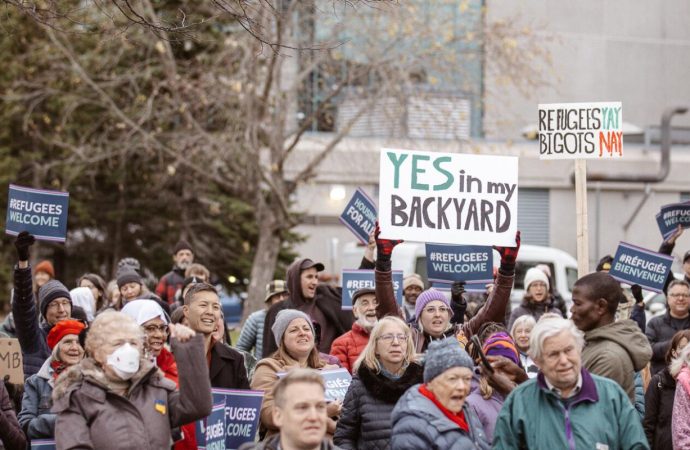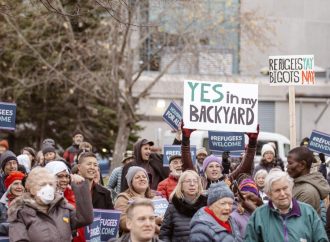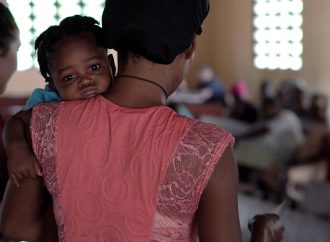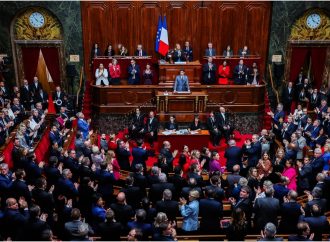On April 3rd, 2025, uOttawa’s Centre for International Policy Studies, Human Rights Research and Education Centre (HRREC) and the Canadian Council for Refugees hosted a panel discussion for Refugee Rights Day, with Laïla Demirdache, Thomas Ndayiragije, Aditya Rao and Diana Gallego. The speakers focused on protecting the right to asylum from legal, policy, programming and lived experiences. In the context of World Refugee Day on June 20th, this focus on refugee rights is especially timely.
Global context
The right to seek asylum is protected under the 1951 Refugee Convention and is codified in domestic legislation and customary law. People have sought refuge for millennia and continue to do so because of democratic backsliding, conflict, violence and human rights violations.
However, too many governments are turning their backs on refugee claimants. The last decade has witnessed shrinking spaces of asylum as states close their borders, criminalize migration and externalize the border in order to keep people from making an asylum claim in their territories. Such policies trap people in dangerous situations or force them into perilous, underground journeys.
The majority of people who are displaced remain in their countries or regions of origin, with 73% of refugees and people in need of protection hosted in low- and middle-income countries. Rich countries like Canada who benefit from the global mobility of capital and talent can and should do more.
Refugee rights in Canada
In the 1985 Singh v. Minister of Employment and Immigration case, the Supreme Court of Canada found that the Canadian Charter of Rights and Freedoms guarantees the right to procedural fairness to everyone in Canada, including to refugee claimants who had sought the right to an oral hearing. This set in motion the creation of the world’s gold standard in refugee status determination, now known as the Immigration and Refugee Board (IRB), which has institutional and administrative independence. The decision is commemorated annually in Canada on April 4th as Refugee Rights Day.
Successive governments have sought to claw back rights back. In 2012, for example, the government took away health care from certain refugee claimants, a policy that was found to be “cruel and unusual punishment” when it was struck down by the federal court.
This year, as refugees and human rights advocates commemorate the fortieth anniversary of the Singh decision, the Canadian government has proposed a significant rollback of refugee rights through Bill C-2, the so-called Strong Borders Act. The proposed legislation would make entire groups of refugee claimants ineligible to even have their case heard by the IRB – undermining the fundamental procedural right recognized in Singh.
Under the proposed changes, individuals who have been in Canada for more than a year or who make a claim 14 days after irregularly crossing into Canada via the United States would be denied access to the IRB. They may be offered a Pre-Removal Risk Assessment (PRRA) instead as an option of last resort to avoid being sent back to persecution, which could include an interview – but not a hearing. However, PRRA decision-makers, who are Immigration, Refugees and Citizenship Canada (IRCC) officials, do not have the independence nor the expert resources available at the IRB, and do not provide the procedural protections a tribunal would offer.
Although the IRB is imperfect, the government must strengthen our world-renowned refugee determination system, not limit access to it. This is especially troubling amidst the rapid expansion of detention and deportation in the United States, and the specific targeting of individuals from the LGBTQ+ community.
Canada should show leadership on World Refugee Day and beyond: Recommendations for action
Canada must renew its global leadership in refugee protection at a time when states are closing their doors to people fleeing persecution. The federal government must urgently rescind Bill C-2 and withdraw from the Safe Third Country Agreement with the United States.
Otherwise more people will be forced to risk their lives by undertaking dangerous journeys to seek safety; live without status and face barriers in accessing key services; be separated from their families; or sent back to danger.
The government should establish a national system to ensure refugees have housing, work and community as they build their new lives in Canada while their claims are being processed.
In the face of a global solidarity crisis for forced displacement, Canada must step up. We have been here before. Four decades ago, Canadians welcomed tens of thousands of refugees fleeing persecution and violence in Vietnam, Cambodia and Laos. More recently, we opened our communities to people displaced from Syria, Afghanistan and Ukraine. Equity must be at the forefront of our leadership, especially as Canada’s response to protect Palestinian and Sudanese refugees has been woefully inadequate.
Providing refugees protection from persecution is not just a legal responsibility. It is a moral imperative. It is a principle that has endured for centuries. It must be courageously protected, not dismantled in cowardly capitulation to scarcity politics.









